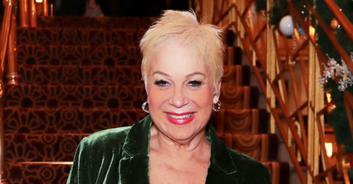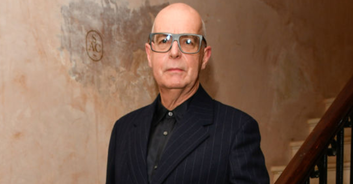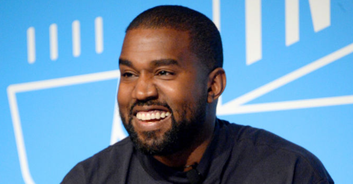Last week, less than two months after the death of Senator John McCain, Donald Trump was back to criticising him. Trump wanted to dismantle a key piece of Obamacare legislation but McCain voted against this. “We had the votes to repeal and replace, and somebody disappointed us a little bit,” Trump said on Thursday, recounting the story. “But we’ll get another shot.”
The rivalry between Trump and McCain went on for almost two decades, with Trump saying of McCain in 1999: “He was captured … Does being captured make you a hero? I don’t know. I’m not sure.” Trump confirmed his feelings on the issue in 2015. “He’s not a war hero,” he stated. “He’s a war hero because he was captured?” he asked, before adding “I like people that weren’t captured.”

However, while the two men do seem to agree on certain issues, their backgrounds could not be more different. McCain was raised in a military family with firm principles and a focus on respect. Trump came from a wealthy background and received funding from his father for his various enterprises.
In fact, around the same time that John McCain entered the Navy in 1958, Donald Trump was sent to the New York Military Academy due to his errant behaviour. However, within a decade, he had escaped military school as well as avoiding the draft.

In spring of 1968, 21-year-old Donald Trump was already living the high life. Working for his father’s real estate company, he was making a name for himself not only as a businessman but also as a name on the New York social scene. Manhattan was his stomping ground but the world was his oyster. He was young, rich and carefree.
Meanwhile, John McCain was relearning how to walk. The Navy pilot had been captured by the Viet Cong after his plane crashed over enemy territory in Vietnam. Kept on the brink of death, McCain was the subject of his captors' hatred but was not dispensible. He knew secrets which they aimed to extract, using a range of torture methods, over the course of five years.

McCain would probably have been left for dead had his captors not ascertained that his father was an admiral. However, the medical care he received was careless. “They had great difficulty putting the bones together, because my arm was broken in three places and there were two floating bones,” wrote McCain, whose knee ligaments were sliced accidentally. “I watched the guy try to manipulate it for about an hour and a half trying to get all the bones lined up. This was without benefit of Novocain.”
McCain was captured just one day after he successfully destroyed two enemy planes. Having begged to go out and fly the next day, on October 26, 1967, his jet took a direct hit. “I was on my 23rd mission, flying right over the heart of Hanoi in a dive at about 4,500 feet, when a Russian missile the size of a telephone pole came up - the sky was full of them - and blew the right wing off my Skyhawk dive bomber,” he wrote in a 1973 account of the incident. “It went into an inverted, almost straight-down spin. I pulled the ejection handle, and was knocked unconscious by the force of the ejection.”

Landing in a lake, with both arms and one leg shattered from the explosion, McCain managed to get himself and his 50 pounds of gear to the shore with his one good arm. Viet Cong soldiers dragged him out of the water and started kicking, shouting and spitting at him.
“One of them slammed a rifle butt down on my shoulder, and smashed it pretty badly,” he wrote. “Another stuck a bayonet in my foot. The mob was really getting up-tight.” They then beat him unconscious and attempted to prize secrets out of him using unspeakably cruel methods for five long years.

Meanwhile, Donald Trump was living a life of luxury. He had made $200,000 ($1.4 million in today’s money) just while working for his father in college. Now, however, he was on the road to becoming a tycoon and was more than happy to part with some of his earnings in Manhattan’s most exclusive clubs.
However, there was one big issue. “This was not a world I found very attractive,” he wrote in Trump: The Art of the Deal. “I’d just graduated from Wharton, and suddenly here I was in a scene that was violent at worst and unpleasant at best.” The problem Trump was faced with was collecting rent.

“One of the first tricks I learned was that you never stand in front of someone’s door when you knock. Instead you stand by the wall and reach over to knock,” Trump wrote of collecting rent from families in his father’s low-income housing blocks. “The first time a collector explained that to me I couldn’t imagine what he was talking about. ‘What’s the point,’ I said. The point, he said, is that if you stand to the side, the only thing exposed to danger is your hand.”
For young Donald, this didn’t match up to the comparative luxury of riding around New York in his father’s limosines. “There were tenants who’d throw their garbage out the window,” he adds, “because it was easier than putting it in the incinerator.”

“The turning point came in 1971, when I decided to rent a Manhattan apartment,” Trump wrote. “It was a studio, in a building on Third Avenue and 75th Street, and it looked out on the water tank in the court of the adjacent building…. I was a kid from Queens who worked in Brooklyn, and suddenly I had an apartment on the Upper East Side…. I got to know all the good properties. I became a city guy instead of a kid from the boroughs. As far as I was concerned, I had the best of all worlds. I was young, and I had a lot of energy.”
“One of the first things I did was join Le Club, which at the time was the hottest club in the city and perhaps the most exclusive - like Studio 54 at its height,” he wrote. “Its membership included some of the most successful men and the most beautiful women in the world. It was the sort of place where you were likely to see a wealthy 75-year old guy walk in with three blondes from Sweden.”

However, as one of the youngest businessmen in these circles, Trump was apparently something of a threat. Trump claimed that he was so handsome the manager of the club was "worried that I might be tempted to try to steal [customers'] wives" adding, "he asked me to promise that I wouldn’t do that."
While Trump was concerned about how good he looked, John McCain’s captors were breaking the same bones which they had mended. Having been moved from “The Plantation”, he was now in the “Hanoi Hilton”. However, while most Hiltons come with plush towels and room service, this one came with haemorrhoids and dysentery. McCain survived on watered-down pumpkin soup and scraps of bread.

McCain refused to meet visitors out of fear of being used as a puppet for the Viet Cong. The only thing keeping him sane was memories of books and movies - and conversations tapped out on walls in Morse code with other POWs. Tragically, however, he also saw fellow POWs beaten to death in front of him. He was persuaded, coerced and tortured towards compliance. By now, all they wanted in exchange for his release was for McCain to sign a confession which the Viet Cong would then use as a PR stunt. However, McCain wasn’t willing to compromise.
Around the same time, Trump had decided upon a favourite nightclub. Studio 54 specialised in art deco, disco and debauchery. “I saw things happening there that to this day, I have never seen again,” Trump told biographer Timothy O’Brien. “I would watch supermodels getting screwed, well-known supermodels getting screwed on a bench in the middle of the room. There were seven of them and each one was getting screwed by a different guy. This was in the middle of the room.”

Studio 54 was a highly exclusive club but Trump was on his way to stardom. A shrewd businessman, he had learned to manipulate others and buy politicians’ favour. “The other thing I promoted was our relationship with politicians, such as Abraham Beame, who was elected mayor of New York in November of 1973,” he wrote in Trump: The Art of the Deal. “Like all developers, my father and I contributed money to Beame, and to other politicians. The simple fact is that contributing money to politicians is very standard and accepted for a New York City developer.”
In was this year, on March 14, that McCain was finally released. Stepping off the plane back onto US soil, it was a moment which he had often thought would never come. Physically, he was a shadow of the man he used to be. However, having never once broken under interrogation, he had returned a hero. What his captors had hoped would be a publicity coup for them had turned out to be a huge story of patriotism and positivity in the American press.

That he had survived his time at The Plantation was unlikely enough in itself. “I was down to about 100 pounds from my normal weight of 155,” he wrote. “I was told later on by [cellmate] Major Day that they didn’t expect me to live a week.” Needless to say, McCain had to adjust to the comfort of civilian life. But Trump was facing some challenges too.
The same year, Trump found himself in a legal battle with the Department of Justice, having flouted the Fair Housing Act. "The Government contended that Trump Management had refused to rent or negotiate rentals 'because of race and color,'" stated the New York Times. "It also charged that the company had required different rental terms and conditions because of race and that it had misrepresented to blacks that apartments were not available."

According to the Times, he aimed to avoid singing a consent decree. “Mr. Trump said he would not sign such a decree because it would be unfair to his other tenants,” the Times stated.
“He also said that if he allowed welfare clients into his apartments … there would be a massive fleeing from the city of not only our tenants but the communities as a whole.” However, despite having called upon the services of New York’s best lawyers, Trump eventually signed.

Both Trump and McCain later went into politics and, despite some apparent similarities when it comes to values, were fierce rivals. In a strange form of political gaslighting, Trump has a history of attempting to convince his detractors that they aren’t fit to govern. It came as no surprise, then, when one of his aides reportedly said McCain’s opinion didn’t matter because “he’s dying anyway”.
When McCain did pass away, it was perhaps a little optimistic to think that Trump would respectfully stay quiet about his feelings toward the late senator. However, as we’ve seen, it seems the president will say anything to keep his name in the headlines.












